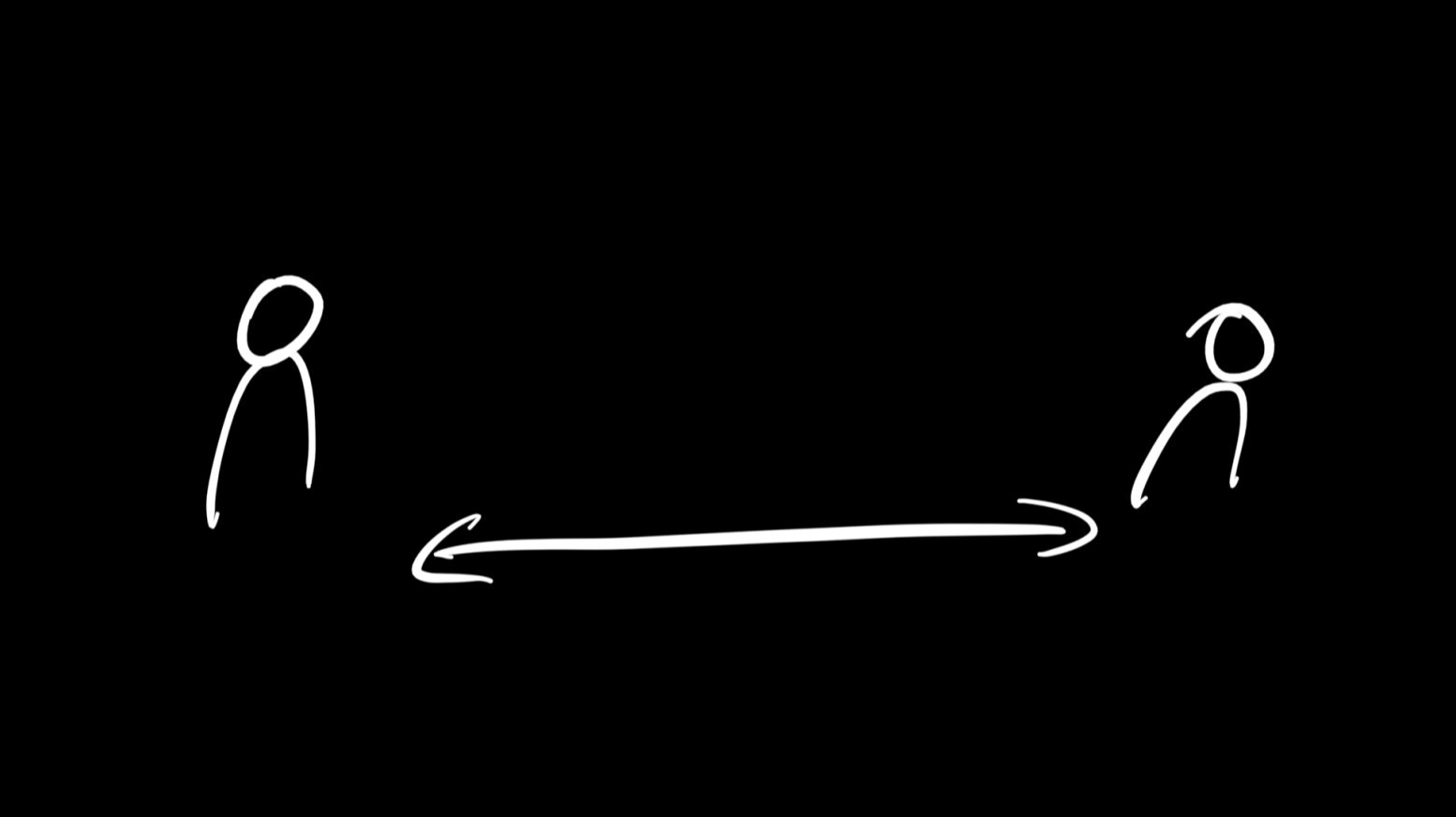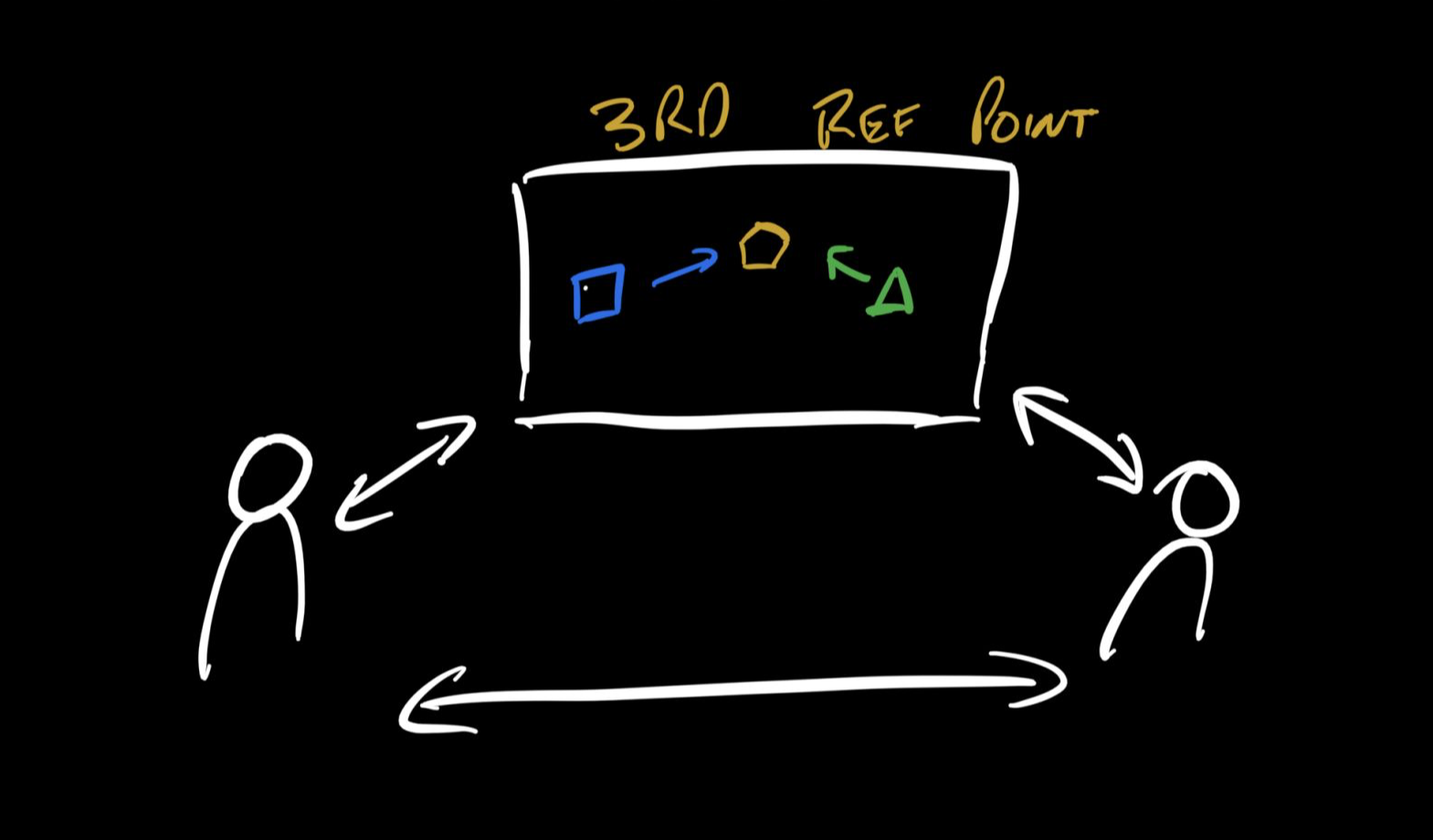What is the '3rd Reference Point'


Write your awesome label here.
Build Trust & Influence with your Stakeholders
With the Stakeholder Management Essentials course today!
Behind every idea, thought, or opinion is a whole bunch of underlying assumptions, beliefs and experiences that have led that person to that idea.
What is the '3rd Reference Point'

Whilst there are only two reference points, we are stuck in a stalemate arguing over your opinion vs mine.
A 3rd reference point would be introducing a new point of reference outside of the two people, one that can then be neutral and shift the conversation.

A 3rd reference point can be anything but ideally it's a whiteboard or a screen or paper, anything where you can start to put the ideas down on.
This is actually quite powerful as we shift the conversation away from being "me vs you" to talking about the ideas in a neutral domain - the 3rd reference point.
What we can also now do is start to unearth those underlying assumptions, beliefs and experiences.
We can ask questions like:
- What are the pros and cons to each of these ideas?
- What made you come to this conclusion?
- What data do we have to support either idea?
- etc
Another powerful thing is your physical stance. Rather than remaining facing each other - like a face-off - you physically shift to be both facing the '3rd Reference Point'. This in itself is a powerful non-verbal cue that can help reduce conflict and provide a more neutral ground for constructive conversation.
And whilst we do this, more often than not we will uncover something that will shift the opinion of one of you. For example, you might hear something that you didn't know lead them to that idea and you may think, "ok that makes a lot of sense now"
The other alternative of course is that you might also merge your ideas together and come up with an alternative idea.
But regardless of whether you manage to form a consensus or not, using the 3rd reference point can enable you to get those underlying assumptions, beliefs and experiences down on paper. You can then ask yourself, what do we need to do next to move forward?
For example, you may want to validate one or more of the assumptions. You may have found an assumption that you both don't agree on and was likely the source of the misalignment and conflict originally. Now knowing this you can then take actions to go and get more data on that assumption to inform one direction over another.
So the next time you find yourself in a stalemate between one idea vs another try introducing a '3rd Reference Point' and begin to facilitate a conversation to unearth those underlying assumptions and beliefs.
